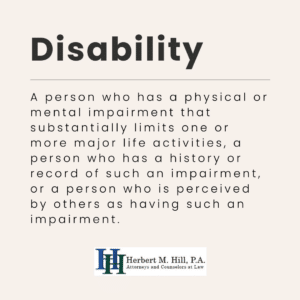Understanding “what medical conditions qualify for Long Term Disability” is critical for individuals navigating the complexities of Long Term Disability (LTD) insurance.
When facing a disabling medical condition, the ability to work and provide for yourself and your loved ones can suddenly become uncertain. LTD insurance is a vital safety net for many individuals during challenging times. It offers financial support for those unable to work due to health issues, injuries, or accidents so they can continue to support themselves and their families despite their inability to earn a regular income.
Imagine being diagnosed with a severe neurological disorder that impairs your motor functions or a chronic illness that requires ongoing medical treatments. These conditions can drastically impact your ability to perform your job effectively, leading to financial instability and uncertainty about the future. An LTD policy can mean the difference between economic survival and hardship.
What Medical Conditions Qualify for Long Term Disability?
A broad spectrum of medical conditions can qualify for Long Term Disability benefits, each assessed based on its severity and impact on an individual’s ability to work.
The Long Term Disability definition varies by insurance providers, but in general, the following categories of medical conditions qualify for LTD benefits:
Neurological Disorders: Conditions including multiple sclerosis (MS), Parkinson’s disease, epilepsy, and stroke can cause significant impairments in physical and cognitive abilities, affecting one’s capacity to maintain gainful employment.
Musculoskeletal Disorders: Chronic back pain, arthritis, and degenerative joint diseases are frequent reasons for LTD claims due to their persistent pain and limitations on mobility, hindering daily work activities.
Cancer: Oncological disorders, including various types of cancer like leukemia and lymphoma, often require intensive treatments like chemotherapy and radiation. The side effects of these treatments can make it impossible to work, warranting LTD benefits during treatment and recovery.
Cardiovascular Disorders: Heart conditions such as congestive heart failure, coronary artery disease, and heart attacks may qualify for LTD if they severely restrict physical capabilities and impact job performance.
Mental Health Disorders: Psychiatric conditions like clinical depression, bipolar disorder, and PTSD can impair one’s ability to function effectively in a work environment. Policies often include limitations on benefits for mental health conditions, requiring careful assessment and documentation.
Other Medical Conditions: Autoimmune disorders, respiratory diseases, gastrointestinal disorders, and genetic conditions affecting multiple body systems may also qualify for LTD benefits, depending on their impact on an individual’s ability to work.
How We Can Help With LTD Denials and Appeals
At Herbert M. Hill, P.A., we specialize in assisting individuals who have been denied Long Term Disability benefits or are navigating the complex appeals process. Our dedicated legal team understands individuals’ challenges when dealing with disabling conditions and works tirelessly to ensure their rights are protected under their LTD policies.
We can provide comprehensive legal support if your LTD claim has been denied or you face challenges during appeals. From gathering necessary medical evidence to preparing a solid appeal, we advocate for our clients’ best interests every step of the way.
Contact Herbert M. Hill, P.A. today to answer questions about Long Term Disability medical conditions. Schedule a free consultation to discuss your LTD denial or appeal. We are here to help you get the benefits you are entitled to so you can focus on your health.






